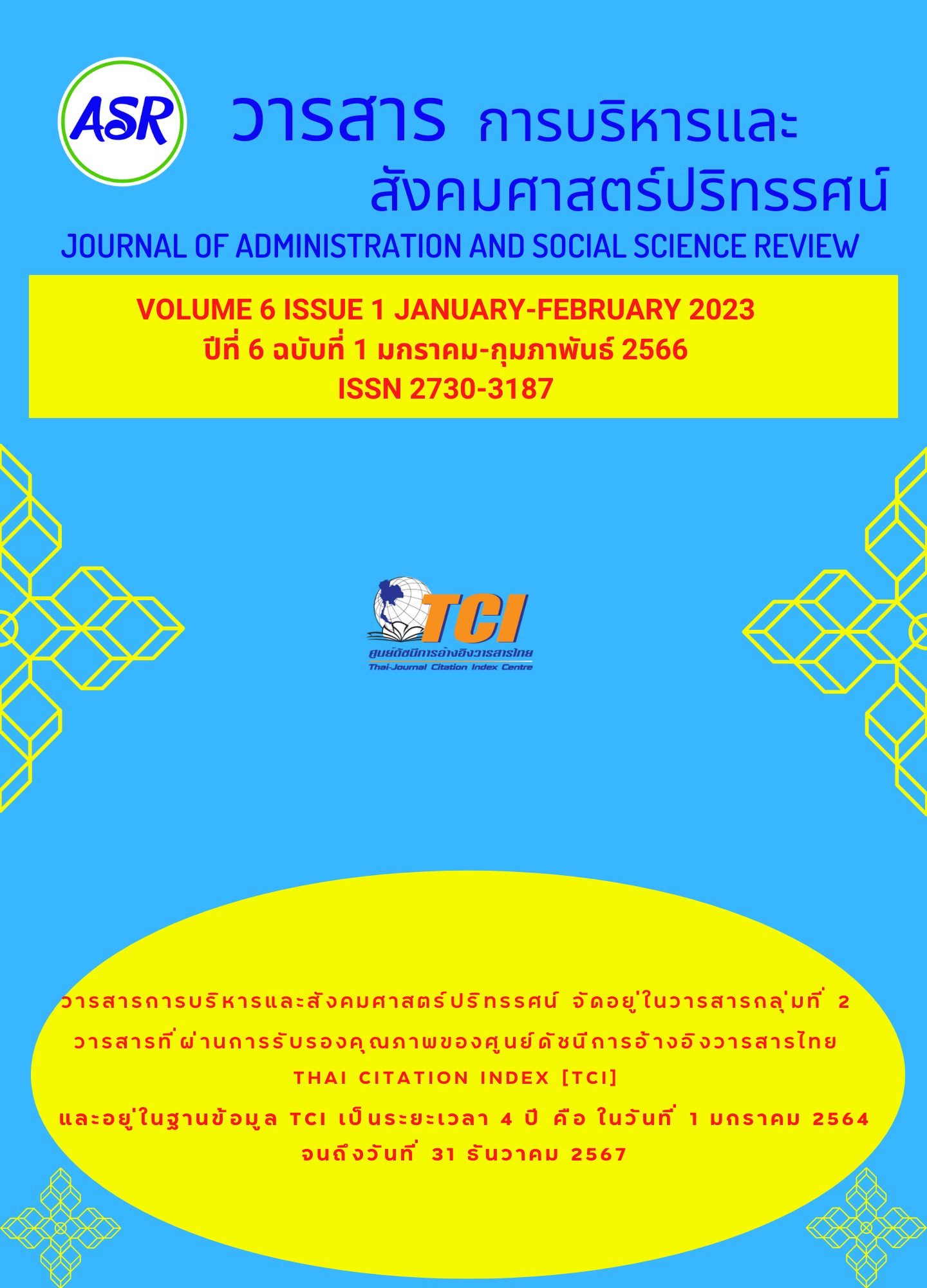Economic Stimulus Policy: A Case Study of the 50:50 Co-payment Scheme
Keywords:
policy, economic stimulus, 50:50 co-paymentAbstract
The current academic article aimed 1. to discover the success of economic stimulus policy in the second phase of the 50:50 co-payment scheme, and 2. to recommend the guidelines of economic stimulus policy development for the 50:50 co-payment scheme. According to the document and literature reviews from textbooks, articles, research studies, news and other relevant information, the success of the 50:50 co-payment scheme was attributed to government communications, benefits, resources, operations, fairness, service accessibility, convenience, transparency, and technology use. The development guidelines were divided into three categories: 1. Participant rights and registration: giving all qualified citizens the rights to participate in the scheme without registration, training the registered citizens on the technology use, and developing easier-to-use applications; 2. Equality: providing registration services for people through responsible state agencies rather than registering through applications, and using an ID card to confirm the rights of buyers of goods and services; and 3. Fraud prevention: imposing punishment measures preventing corruptions from the merchants and citizens. The 50:50 co-payment scheme was a project that helped increase economic spending and produced tangible effects; nevertheless, the government should have other projects to promote the economy as well.
Summarily, this academic article, raised people's awareness and interest, as well as informed them about the benefits and importance of possessing technological abilities. Furthermore, this article aided Thailand's speedier transition to a digital society, and was valuable for policymakers to utilize as a guideline for developing policies to promote the country's economy and improving mistakes for future initiatives.



